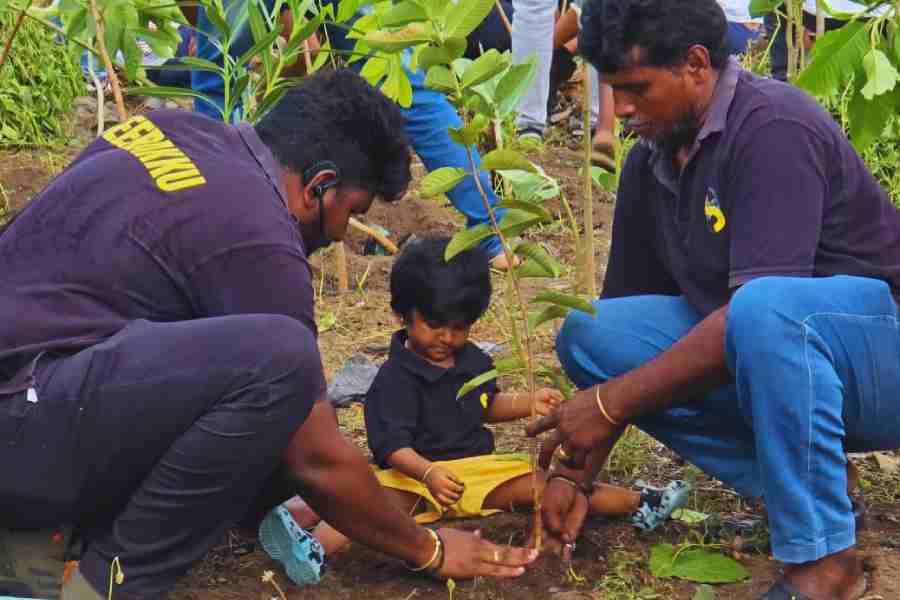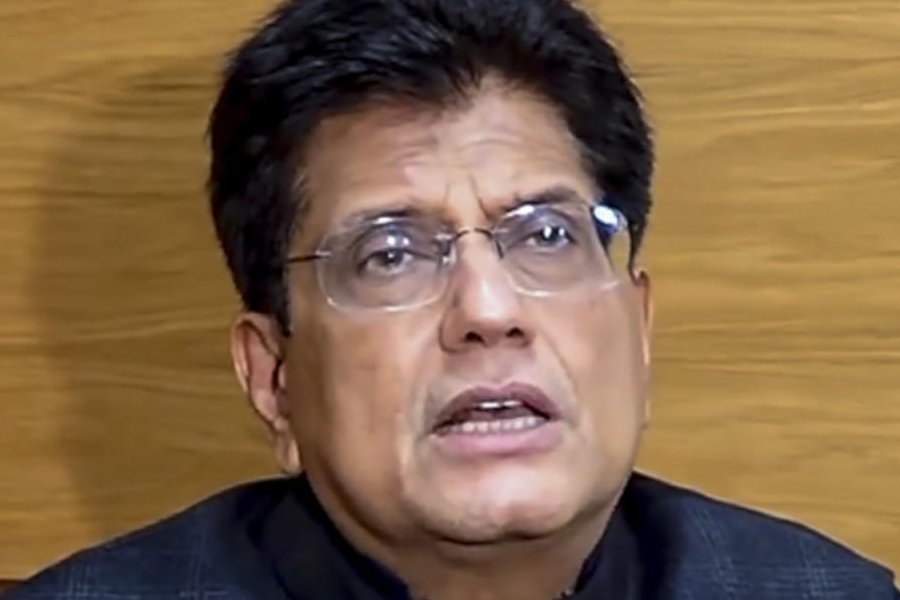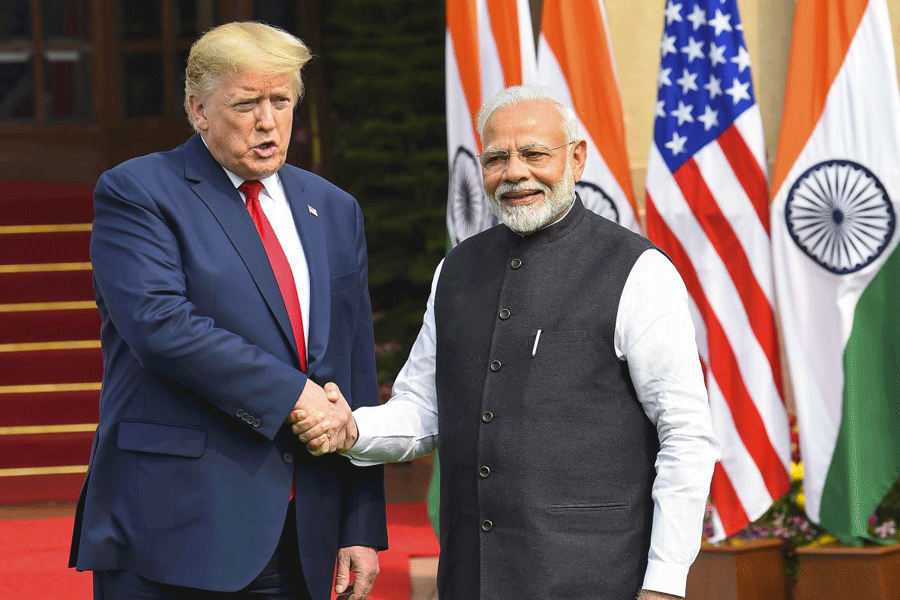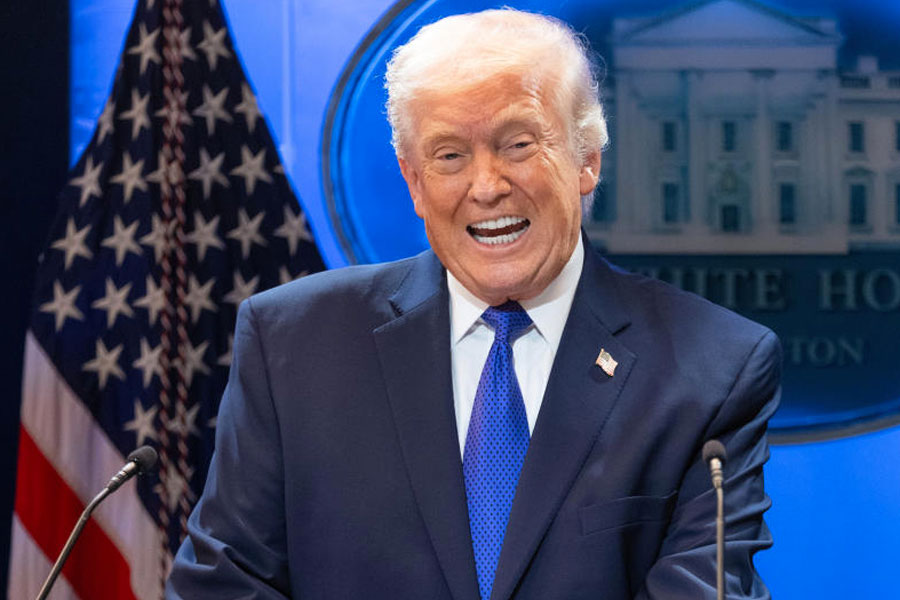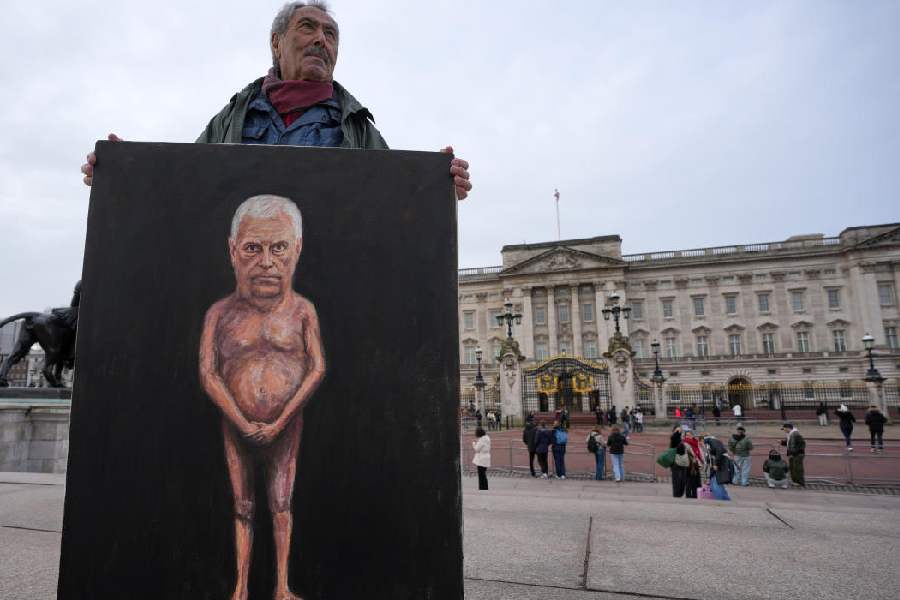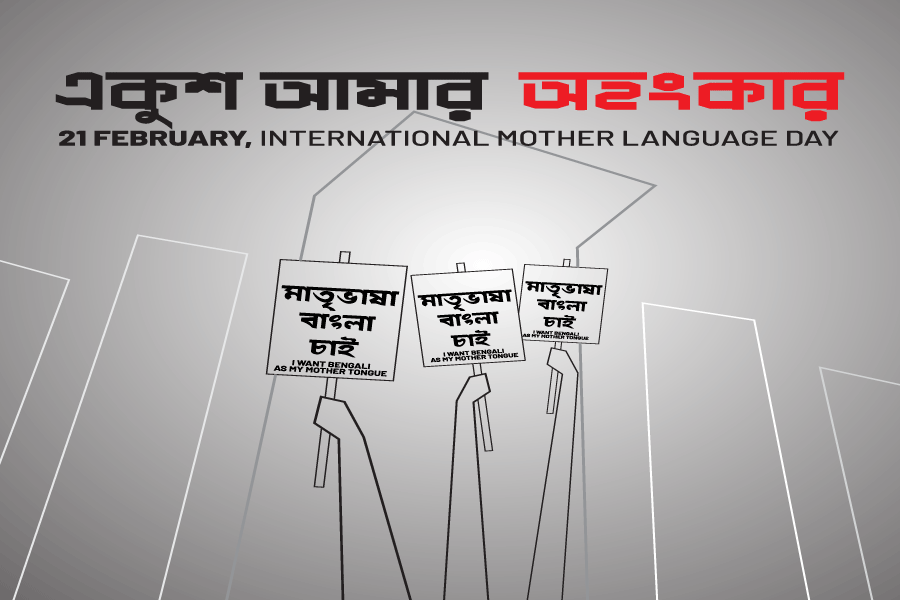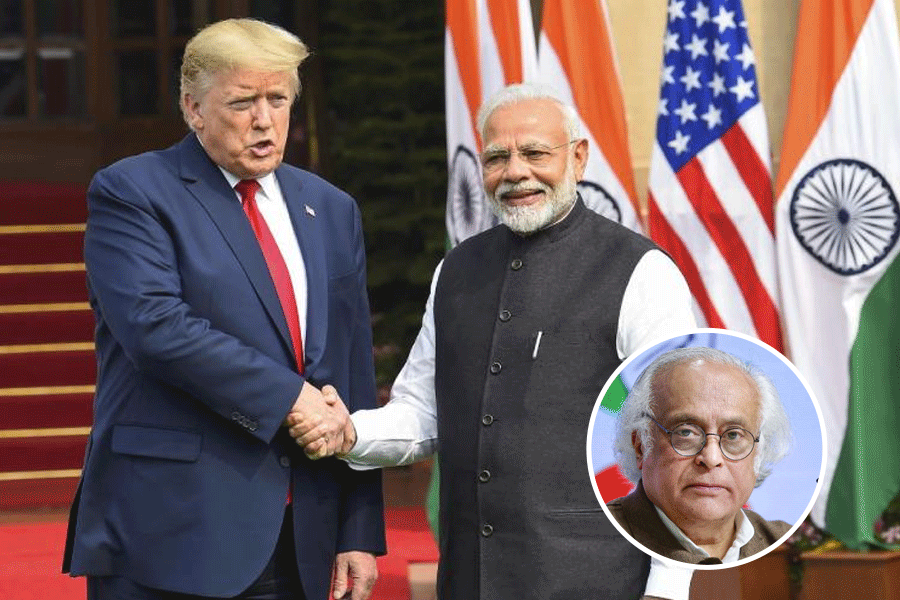Existential crisis
Sir — Falling birth rates across the world might not be a bad thing given the toll that overconsumption takes on the planet. In fact, many young people cite climate change as the reason behind not wanting to have a child. A couple from Tamil Nadu, though, seem to have found a solution to this dilemma by planting 6,000 fruit trees around their home to ensure that their newborn’s carbon emissions are fully absorbed as the trees grow along with her. Unfortunately, people living in crammed apartments in overcrowded cities do not have the luxury of planting even a single big tree, let alone 6,000 of them. Moreover, while Aadavi in Tamil Nadu has become the world’s first carbon-neutral baby, the planet she will grow up in will still be one ravaged by global warming. Is that a future people find desirable for their offspring?
Sucheta Roy, Calcutta
Correctly predicted
Sir — The father of the Constitution, B.R. Ambedkar, had warned Indians against hero-worship during one of his famous speeches in the Constituent Assembly (“Ambedkar’s warnings”, Jan 25). His speech echoed the remark of the English philosopher, Herbert Spencer, who had said that “Hero-worship is strongest where there is least regard for human freedom.” Babasaheb’s beliefs regarding constitutional morality are relevant in the context of recent scuffles among members of Parliament. He had also rightly pointed out that political democracy is meaningless without ensuring social democracy. India’s high wealth inequality, thriving crony capitalism and persecution of marginalised communities show that he was right to be apprehensive.
Prasun Kumar Dutta, West Midnapore
Sir — B.R. Ambedkar was not only a great scholar but a true visionary who had recognised the problems that still plague Indian society. He correctly predicted that ruling dispensations would attempt to change the Constitution to suit their own interests and appease majoritarian sentiments.
Fateh Najamuddin, Lucknow
Cherished books
Sir — On January 26, 2025, the Constitution of India completed 75 years of its existence. Our Constitution is flexible in that it allows as many amendments as are genuinely warranted. But constitutional amendments can be a slippery slope to dictatorship as demonstrated during the Emergency.
T. Ramadas, Visakhapatnam
Sir — Prabowo Subianto is the fourth Indonesian president to attend India’s Republic Day ceremony. Seventy-five years after the Indian Constitution was adopted, it is important to remember the contributions of those who originally formulated it. The Constitution has been protecting the needs and nourishing the aspirations of different sections of our society. So far, 106 amendments have been made to the Constitution to meet the changing needs of the country. However, we must take care to preserve its basic structure.
Kirti Wadhawan, Kanpur
Sir — It is of significance that Prabowo Subianto was the chief guest at this year’s Republic Day celebrations. In the 1950s, the Indian prime minister, Jawaharlal Nehru, and the then president of Indonesia, Sukarno — leaders of two nascent republics — had come together to further the cause of developing Afro-Asian nations newly liberated from colonial rule. Although bilateral relations between the two nations hit some rough patches, their deep historical bond has survived nonetheless.
R. Narayanan, Navi Mumbai
Sober state
Sir — The chief minister of Madhya Pradesh, Mohan Yadav, has formally announced that a liquor ban will be implemented in 17 religious cities, towns and villages in the state. Yadav has cited both religious and social reasons for this decision. What is baffling is that while most politicians speak about the adverse effects of alcohol consumption, they shy away from imposing a total ban on its production and marketing since that will bring down revenue generation.
Jang Bahadur Singh, Jamshedpur
Sir — The decision of Mohan Yadav to impose a complete ban on alcohol at all places of religious importance in the state will have a huge impact. This move will preserve the sanctity of these sites and promote sobriety.
R.K. Jain, Barwani, Madhya Pradesh
Eternal quest
Sir — At an ongoing literary meet in Calcutta, the Nobel laureate, Venki Ramakrishnan, imparted his views on death and ageing as subjects of eternal philosophising (“Nobel laureate on ageing and the quest for immortality”, Jan 25). The quest to evade both death and ageing is as eternal as time itself. As Ramakrishnan pointed out, most human activity is motivated by the fear of death.
Santi Pramanick, Howrah
Sir — Venki Ramakrishnan’s thoughts on death, ageing and longevity are quite profound. His point about the fear of death being ingrained in human biology is particularly interesting. It is fascinating to think about the balance between pursuing longevity and the ethical questions that come with it.
Junainah Javed, Calcutta
Sir — Progress in modern medicine has helped us live longer than ever before. The dream of billionaires to remain cryogenically frozen so that they can be revived in the future may well come true some day. Artificial implants and prosthetics have improved the quality of our lives. Technology may one day merge man and machine. Science may then produce humans who have vastly increased intelligence and strength. Some scientists, however, believe that the laws of thermodynamics will prevail and entropy will always win.
H.N. Ramakrishna, Bengaluru

